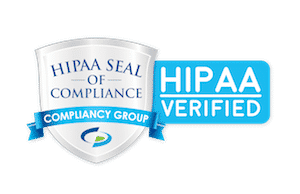
Ensuring Confidentiality and Compliance: The Role of Postal Methods in HIPAA Compliant Mailings
In the healthcare industry, protecting patient information is of paramount importance. The Health Insurance Portability and Accountability Act (HIPAA) sets the standard for safeguarding sensitive patient data, and healthcare providers are constantly seeking secure and compliant methods for communication. While digital communication tools have become prevalent, the use of Postal Methods remains a crucial component of ensuring HIPAA compliance in mailings.
Security and Privacy:
HIPAA regulations mandate the protection of patients’ health information, and Postal Methods offer a heightened level of security and privacy. Sending sensitive documents, such as medical records, test results, or billing information, through the mail provides a physical barrier against unauthorized access, reducing the risk of data breaches compared to electronic communication.
Tangible Documentation:
Physical mailings create tangible, documented records of communication. In the event of an audit or compliance check, having a paper trail is invaluable. This documentation not only helps healthcare providers meet HIPAA requirements but also serves as a tangible record of patient communication and consent.
Customization and Personalization:
Postal Methods allow for personalized and customized communication tailored to individual patients. Healthcare providers can send personalized letters, brochures, or educational materials directly to patients, ensuring that the information is relevant to their specific health needs. This personalized approach fosters patient engagement and compliance with treatment plans.
Inclusive Communication:
Not all patients have access to digital devices or reliable internet connections. Postal Methods ensure inclusivity in healthcare communication, reaching patients who may be in remote areas or have limited technological resources. By utilizing traditional mailings, healthcare providers can guarantee that all patients have equal access to essential health information.
Compliance with HIPAA Privacy Rule:
The HIPAA Privacy Rule requires covered entities to implement safeguards to protect the privacy of patient information. Postal Methods align with these regulations by providing a secure means of communication. Using sealed envelopes and designated mailing systems ensures that patient information is transmitted in a manner consistent with the Privacy Rule’s requirements.
Notifying Patients of Privacy Practices:
HIPAA mandates that healthcare providers inform patients of their privacy practices. Sending privacy notices and other essential information through Postal Methods ensures that patients receive and can reference these materials in a tangible format. This helps patients understand their rights regarding the use and disclosure of their health information.
Legal and Ethical Considerations:
In healthcare, compliance with legal and ethical standards is crucial. Postal Methods offer a reliable and ethical means of communication that aligns with the principles of patient confidentiality and data protection, meeting both legal and ethical obligations.
In the evolving landscape of healthcare communication, the use of Postal Methods remains a cornerstone for ensuring HIPAA compliance. The security, privacy, and tangible documentation provided by traditional mailings complement the digital tools available to healthcare providers, creating a comprehensive and compliant approach to patient communication. As the healthcare industry continues to prioritize patient privacy, the role of Postal Methods in HIPAA compliant mailings remains not only relevant but indispensable.

